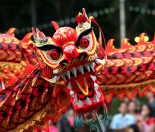On the 6th of February each year, New Zealand celebrates Waitangi Day. The purpose of this public holiday is to remember the Treaty of Waitangi – our founding document, and acknowledge the role this document plays right through to our current day.
Brief history of Waitangi Day
Waitangi is a small town in the Bay of Islands, and on 6 February 1840, approximately 540 Māori representatives together with representatives from the British Crown met at Waitangi to sign a treaty that would change the course of New Zealand history forever.
Prior to the signing of the Treaty, there was a great deal of unrest amongst the different groups living in New Zealand. British citizens were emigrating to New Zealand in large numbers. They required land in which to settle and make new lives – which understandably, caused considerable tension amongst Māori. The Treaty of Waitangi would offer Maori rights to their land, while bringing New Zealand under British sovereignty. There were, and have continued to be issues surrounding the translation of the document and whether both parties understood what was being signed in the same way.
Here is an overview of the Treaty of Waitangi, how it came to be signed and by whom, and some of the ongoing implications of the Treaty on New Zealand society.
https://www.youtube.com/watch?v=Hzr-F4Hfgjo
It’s no secret that the Treaty of Waitangi is the source of some contention, and there is controversy surrounding the way in which the Treaty has been and is to this day carried out. You can read more about controversy and protests here.
You can read the English text and Māori text of the Treaty of Waitangi online. The meaning of the Treaty of Waitangi as it affects New Zealand politically and in terms of land claims is dealt with by The Waitangi Tribunal.
There is no perfect country in which to live, and New Zealand certainly has its issues and share of racial tension. However, we continue to celebrate Waitangi Day because it offers us the opportunity to reflect on our past and offer hope for progress in the future. It is often said that what we celebrate is ‘the spirit of the Treaty‘. There are many peaceful and wonderful celebrations of our unique culture that happen on the 6th of February each year, and it is great for families to be part of these in one way or another.

Family events to celebrate Waitangi Day
Throughout New Zealand, events and festivals are organised on the 6th of February.
- The official celebrations of Waitangi Day at Ngapuhi Te Tii marae in Waitangi are an unforgettable experience. This is a family day out that is very worthwhile – amazing performances, wonderful food, lots of tents/stalls and often stunning weather – oh, and a few protestors! In addition, there is nothing quite like standing where our forefathers stood, imagining what it was like to be part of the signing of the Treaty. A number of waka (canoes) are sailed by local iwi across the sea near the marae, which are impressive.
- Many regional celebrations offer a unique opportunity to celebrate our culture, with haka and powhiri, music and often great kiwi kai.
Other ways to celebrate
- Waitangi Day is a great opportunity to trace your family roots. How far back can you trace your family tree? Is there a local genealogy group or library staff who can help you with your quest?
- Check out some library books with pictures from throughout New Zealand’s history, or look some up online together. What do you know about these events? Are there recognisable figures that have contributed to our nation as a whole?
- You could use the day off as an opportunity to visit relatives, and record some stories from older family members – add them to an album to be treasured for generations to come.
- Who were James Busby, William Hobson and Hōne Heke? What role did they each play in the signing of the Treaty?
- Discuss with your children what the significance of the Treaty of Waitangi is to their lives. Do you have some knowledge of how other countries have dealt with colonialism that you can contrast New Zealand and our Treaty to? What difference has the Treaty of Waitangi made that we can be thankful for? What ongoing issues are reflected in the news and current events around us? How can we each play a role in bringing unity to our communities?






